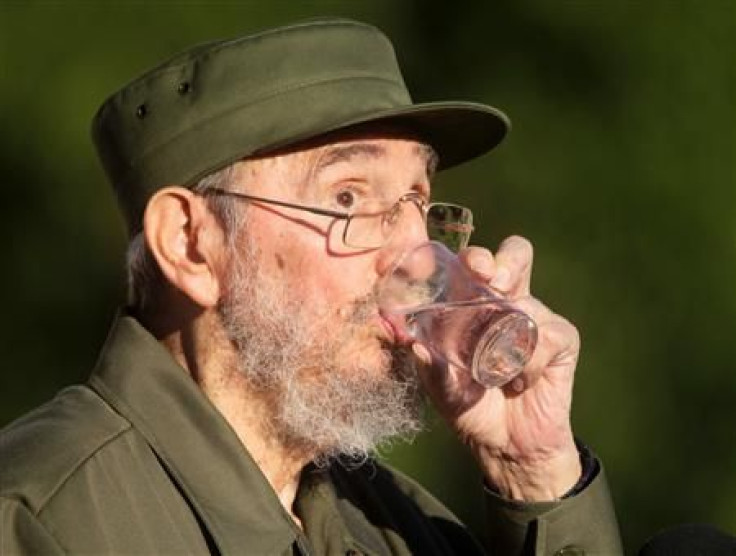Castro Warns World is 'Marching into Abyss' with Shale Gas

(Reuters) - Fidel Castro said Thursday the world was on an inexorable march toward the abyss, which he blamed in part on the discovery and exploitation of vast reserves of so-called shale gas around the world.
Shale gas is natural gas locked in rock formations that in the past decade has been found in great abundance around the world and is now considered a top source of future energy.
Castro, 85, wrote in one of his occasional columns published in Cuban state media that numerous dangers threaten us, but two of them - nuclear war and climate change - are decisive and both are ever further from approaching a solution.
He said he had only recently heard about the shale gas phenomenon, which has created a drilling boom in some parts of the United States, and when he asked several acquaintances both inside and outside of Cuba about the topic, none of them had heard a word about it.
Shale gas production is criticized in some quarters because it requires extensive fracking, which uses water, sand and chemicals to fracture the rock where the gas is trapped to allow it to flow out of the well. Fracking, opponents say, contaminates groundwater sources and can cause other problems.
Castro sided with the critics, quoting reports on the negative effects of fracking and research that said shale gas emits more greenhouse gases than gas produced from conventional wells.
It is sufficient to point out that among the numerous chemical substances injected with the water to extract this gas is found benzene and toluene, which are substances terribly carcinogenic, he wrote.
The information on shale gas was something no political cadre or sensible person could ignore, he said.
Castro said he was so intent on getting the word out, he had let the festive days of the old and new year pass by working on his column.
The column was the first he had written since Nov. 13 and followed an outburst of rumors on Twitter on Monday that Castro had died.
Castro death rumors break out occasionally and this time prompted a rebuke in a Cuban government website, which blamed the rumors on necrophilia counter-revolutionaries.
After taking power in Cuba's 1959 revolution and transforming the country into a communist state, Castro ruled the island for 49 years before ill health and old age forced him to step aside four years ago.
He was succeeded as president by younger brother Raul Castro, 80.
(Reporting by Jeff Franks; Editing by Eric Beech)
© Copyright Thomson Reuters 2024. All rights reserved.











